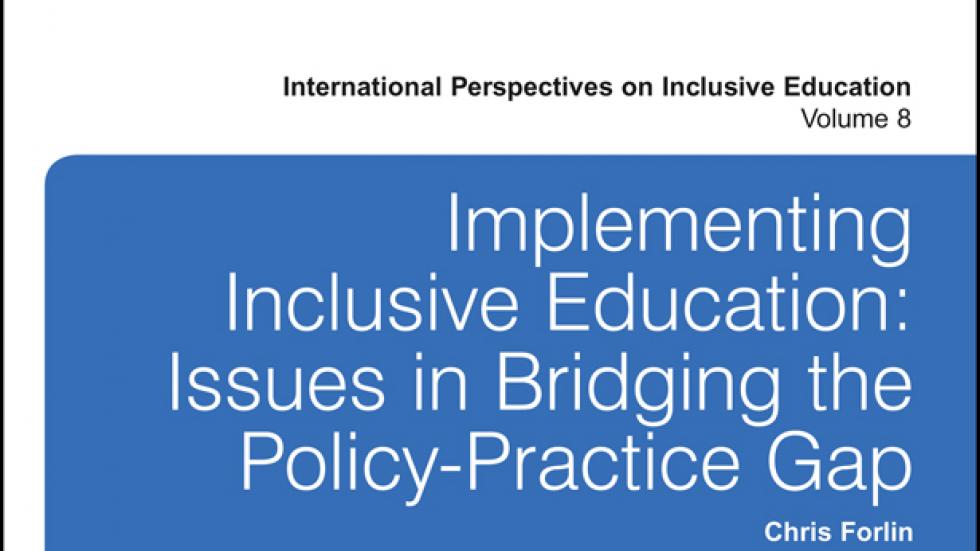How can the implementation of policy for inclusive education be more effectively supported? A new publication entitled Implementing Inclusive Education: Issues in Bridging the Policy-Practice Gap explores this question in detail.
This book constitutes Volume 8 of the International Perspectives on Inclusive Education series by the Emerald Publishing Group, which has a global audience especially among researchers and academics. All of the articles were drafted by Agency staff in co-operation with international experts, drawing on the Agency’s past twenty years’ work in the field.
This volume explores the policy-practice gap, aiming to identify the factors that hinder as well as support the implementation of policy for inclusive education in practice.
The starting point for this examination is a discussion regarding changing conceptions of inclusive education underpinning policy, presented in the first chapter. The subsequent chapters in Section 1 examine key policy areas for inclusive education that all European countries are currently debating and considering - early childhood education and care; financing of inclusive education; educating all teachers for inclusive practice and vocational education and training.
Section 2 considers support and provision, by exploring a range of critical policy implementation issues relating to support for all learners; meeting the needs of learners from diverse multicultural backgrounds; using ICT as a tool to support learning and addressing the challenges of raising the achievement of all learners.
The focus of Section 3 is on considering three different aspects of monitoring the implementation of inclusive education – the challenges associated with inclusive approaches to learner assessment; possibilities for identifying the efficiency, effectiveness and equity within education systems and finally, the crucial aspect of listening to the voices of learners (both with and without special educational needs and/or disabilities) who are the end users of educational provision.
Overall conclusions focus on what lessons there are for bridging the policy-practice gap and better supporting the implementation of policy for inclusive education systems in countries.
The publication is available for purchase online at this link.
